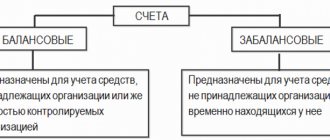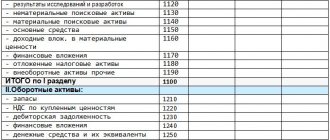Consolidated inspection plan
Ministries and departments carry out scheduled inspections on the basis of annually approved plans. Such inspections are called scheduled. Departments post their plans on their websites. This is required in parts 3 and 5 of Article 9 of Chapter 2 of the Federal Law of December 26, 2008 No. 294-FZ. The consolidated inspection plan for all departments for 2021 is posted on the website of the Prosecutor General's Office. This is where you can check whether inspections of organizations and individual entrepreneurs are planned in 2018.
To find out whether a company or individual entrepreneur should expect inspectors from regulatory authorities in 2021, you will need to enter the following data into a special search form (all at once or some of them):
- TIN;
- OGRN;
- name of company;
- month of inspection;
- name of the state control body;
- address.
Who can be included in a scheduled tax audit?
In the provisions of Art. 89 of the Tax Code of the Russian Federation does not specify which persons - legal entities or individuals - can become objects of tax audits of one type or another. Hence the conclusion: absolutely all subjects of tax payment are subject to inspections: citizens, individual entrepreneurs, commercial firms, non-profit organizations, state and municipal structures.
This partly explains the fact that, from a purely technical point of view, it is difficult for the Federal Tax Service to draw up an inspection plan, even if it were required. Based on the provisions of the law, not only legal entities, but also all citizens of the Russian Federation would be included in the corresponding plan. It is extremely unlikely that the Federal Tax Service will have enough human and technical resources to assess the tax history of every Russian, to examine the personal tax profiles of citizens, in particular, for all those risks that are reflected in the provisions of Order No. MM-3-06/333 .
Read more about conducting an on-site tax audit in the article “Procedure for conducting an on-site tax audit (nuances).”
Plans on the websites of ministries and departments
You can also look up inspection plans on the websites of specific ministries and departments. Further in the table we provide a link to sites with inspection plans for 2021.
| Inspection body | Link to inspection plan |
| Ministry of Finance / Federal Tax Service | Organizations and entrepreneurs (consolidated) |
| Ministry of Finance of Russia/Federal Treasury | Control of audit organizations* |
| FSS/PFR | The FSS of Russia and the Pension Fund of Russia carry out scheduled on-site inspections jointly. The schedule of such inspections can be found on the website of your regional branch of the FSS of Russia |
| Ministry of Labor of Russia/Rostrud | Organizations and entrepreneurs |
| Prosecutor's office | Organizations and entrepreneurs |
| Ministry of Economic Development of Russia/Federal Agency for State Property Management | Federally owned property |
| Ministry of Economic Development of Russia / Federal Service for State Registration, Cadastre and Cartography | Land supervisionLand supervision |
| Ministry of Economic Development of Russia / Federal Accreditation Service | Accredited persons |
| Ministry of Economic Development of Russia / Federal Service for Intellectual Property | Organizations |
| Ministry of Health of Russia/Federal Service for Surveillance in Healthcare | Organizations and entrepreneurs |
| Ministry of Health of Russia/Federal Medical and Biological Agency | Organizations and entrepreneurs |
| Ministry of Industry and Trade of Russia/Federal Agency for Technical Regulation and Metrology | Organizations and entrepreneurs |
| Ministry of Natural Resources of Russia/Federal Service for Hydrometeorology and Environmental Monitoring | Organizations |
| Ministry of Natural Resources of Russia/Federal Forestry Agency | Licensing Organizations and entrepreneurs |
| Ministry of Natural Resources of Russia/Federal Service for Supervision of Natural Resources | Organizations and entrepreneurs |
| Russian Ministry of Defense/Federal Service for Technical and Export Control | Export control |
| Ministry of Transport of Russia/Federal Air Transport Agency | Organizations and entrepreneursOrganizations and entrepreneurs |
How to assess the likelihood of a company being included in the Federal Tax Service inspection plan for 2021?
What ways can a taxpayer assess the likelihood of meeting with Federal Tax Service inspectors as part of a tax audit? First of all, it is within his power to familiarize himself with the key provisions of Order No. MM-3-06/333.
Despite the fact that the law does not allow payers to have access to tax inspection plans for 2021, a study of the key criteria for assessing the activities of tax payers, which were developed by the Federal Tax Service, can, in principle, provide some guidance on both the timing and likelihood of a visit from tax inspectors.
Thus, the department may pay attention to an organization or individual entrepreneur if:
- the tax burden on the company is below the industry average (clause 1 of order No. MM-3-06/333);
- the company reflects losses in its reporting over several tax periods (clause 2);
- the reporting documents contain too large amounts of deductions for a particular period (clause 3);
- an accelerated dynamics of cost growth was recorded in comparison with the rate of increase in revenue (clause 4);
- the company pays employees a lower salary than the industry average (clause 5);
- the company’s indicators, which give the right to work under special tax regimes, are close to the maximum permissible (clause 6);
- Individual entrepreneurs show in their reporting expenses that are as close as possible to the amount of income (clause 7);
- the company forms an unreasonably long chain of counterparties, consisting of intermediaries and resellers (clause 8);
- the organization does not provide explanations to the Federal Tax Service in response to notifications received about the non-compliance of certain performance indicators with established criteria, and does not transfer the requested documents (clause 9);
- the owners of the company frequently re-register the business in different territorial structures of the Federal Tax Service (clause 10);
- the company has noticeable deviations in profitability from the indicators observed on average in the industry (clause 11);
- According to Federal Tax Service specialists, the company operates with a high tax risk (clause 12).
It turns out that the more coincidences on the specified points the Federal Tax Service records in relation to the activities of a particular company, the higher the likelihood of an audit, and the more quickly it can be carried out.
Prohibition on inspections
For small businesses, there are supervisory holidays for three years: in 2016–2018, small businesses should not come for a scheduled inspection. This applies to inspections by Rostrud, the Federal Migration Service of Russia, Rostekhnadzor and Gospozhnadzor. However, this does not apply to tax audits and insurance premium audits (Article 26.1 of Federal Law No. 294-FZ of December 26, 2008).
The ban on inspection does not apply to organizations and entrepreneurs who, in the three years preceding the inspection, were held liable in the form of:
- disqualification;
- administrative suspension of activities;
- deprivation or suspension of a license.
This is stated in Part 2 of Article 26.1 of the Law of December 26, 2008 No. 294-FZ.
Read also
15.10.2017
On-site tax audits: what's new in 2018
Lawyer Denis Morozov explains what changes tax audits have undergone this year, what features entrepreneurs should pay attention to, and how best to prepare for an on-site audit.
On August 19, 2021, amendments to the Tax Code of the Russian Federation came into force, according to which Art. 54.1 of the Tax Code of the Russian Federation “Limits for the exercise of rights to calculate the tax base and (or) the amount of taxes, fees, insurance contributions.” In 2021, tax authorities will make full use of this article when carrying out tax control activities. The main reason for additional charges is the taxpayer’s inability to prove due diligence when choosing contractors.
Taxpayers are prohibited from reducing the tax base and accepting deductions if one of the following grounds exists:
- Information about facts of economic life, about objects of taxation that are subject to reflection in tax and (or) accounting or tax reporting of the taxpayer is distorted.
- The main purpose of the transaction is non-payment (incomplete payment) and (or) offset (refund) of the tax amount;
- The obligation under the transaction was not fulfilled by a person who is a party to the agreement concluded with the taxpayer. An exception is the transfer of obligations to execute a transaction to another person by law or contract.
Circumstances that cannot in themselves serve as a basis for filing tax claims (clause 3 of article 54.1 of the Tax Code of the Russian Federation):
1) primary accounting documents were signed by an unidentified or unauthorized person;
2) the counterparty violated tax laws;
3) the taxpayer could have received the same result of economic activity when performing other transactions (operations).
Provisions of paragraph 2 of Art. 54.1 of the Code do not provide for negative consequences for taxpayers for unlawful actions of counterparties of the second, third and subsequent links.
Tax claims are possible only if the tax authority proves the fact that the transaction (operation) was unrealistic in execution by the counterparty and the taxpayer failed to comply with the provisions established in clause 2 of Art. 54.1 of the Code of Conditions (Letter of the Federal Tax Service of the Russian Federation dated August 16, 2017 N SA-4-7 / [email protected] ).
The obligation to check the counterparty is not established by law. However, taking into account Art. 54.1 of the Tax Code of the Russian Federation and recommendations for the application of the provisions of Art. 54.1 of the Tax Code of the Russian Federation (Letter of the Federal Tax Service of the Russian Federation dated October 31, 2017 N ED-4-9/ [email protected] ) the exercise of due diligence is important to prove the integrity of the taxpayer and the counterparty.
For the purpose of independently assessing risks when choosing counterparties, taxpayers can use publicly available risk assessment criteria reflected in Order of the Federal Tax Service of the Russian Federation dated May 30, 2007 N MM-3-06/ [email protected] “On approval of the concept of a planning system for on-site tax audits.”
What does the tax office pay attention to?
- Lack of personal contacts between the management (authorized officials) of the supplier company and the management (authorized officials) of the buyer company when discussing the terms of delivery, as well as when signing contracts.
- Lack of documentary evidence of the authority of the head of the counterparty company or copies of his identity document.
- Lack of documentary evidence of the authority of the counterparty's representative or copies of his identity document.
- Lack of information about the actual location of the counterparty, as well as the location of warehouse and/or production and/or retail space.
- Lack of information about the method of obtaining information about the counterparty (no advertising in the media, no recommendations from partners or other persons, no website of the counterparty, etc.). Moreover, the negativity of this attribute is aggravated by the presence of available information (for example, in the media, outdoor advertising, Internet sites, etc.) about other market participants (including manufacturers) of identical (similar) goods (works, services), including number of those offering their goods (works, services) at lower prices.
- Lack of information about the state registration of the counterparty in the Unified State Register of Legal Entities.
What documents and what information will the tax service require regarding the actions of the taxpayer when choosing a counterparty?
- documents recording the results of search, monitoring and selection of a counterparty;
- source of information about the counterparty (website, advertising materials, proposal for cooperation, information about the counterparty’s previously performed work);
- results of monitoring the market for relevant goods (works, services), studying and assessing potential counterparties;
- a documented justification for the selection of a specific counterparty (a fixed procedure for monitoring the selection and risk assessment, the procedure for conducting a tender, etc.);
- business correspondence with a counterparty.
8 changes in tax administration in 2021
A year earlier, many other changes took place, which were discussed at the webinar “On-site tax audits in 2021” by auditor and tax lawyer Alexander Matitashvili.
Third parties have the right to pay taxes and fees for the company (amendments to clause 1 of Article 45 of the Tax Code of the Russian Federation).
This rule is effective from November 30, 2021. Also, from January 1, 2017, third parties can pay insurance premiums for the company.
Currently, in paragraph 1 of Art. 45 of the Tax Code of the Russian Federation states that tax payment can be made for the taxpayer by another person, but this person does not have the right to demand a refund from the budget system of the tax paid on behalf of the taxpayer.
From January 1, 2021, the process of collecting taxes from guarantors for tax authorities has been simplified (amendments to clause 3 of Article 74 of the Tax Code of the Russian Federation).
Now inspectors have the right to collect unpaid taxes from guarantors out of court. In 2021, the tax authority could carry out such collection only with the involvement of the courts.
From October 1, 2021, the amount of penalties for late taxes will depend on the period of delay (amendments to clause 4 of Article 75 of the Tax Code of the Russian Federation).
An organization that is late in paying tax by more than 30 days will have to pay a penalty based on the calculation of 1/150 of the refinancing rate. For a period of delay up to 30 days inclusive, penalties are calculated based on the old rate - 1/300 of the refinancing rate.
Until October 1, 2021, when calculating penalties, the number of days of delay does not play a role.
From January 1, 2021, a company, without submitting an explanation to the inspectorate, risks receiving a fine under Art. 129.1 Tax Code of the Russian Federation.
The fine is 5,000 rubles. If a repeated violation is committed during a calendar year, the fine increases to 20,000 rubles.
Inspectors have the right to request an explanation from the company in three cases (clause 3 of Article 88 of the Tax Code of the Russian Federation): 1) if the company declares a loss in the declaration; 2) if the organization shows a tax reduction in the updated declaration; 3) if inspectors find errors and contradictions in the declaration.
Tax officials received full access to information about the cash flows of not only the taxpayer being audited, but also all of his counterparties.
Thanks to Federal Law No. 240-FZ of July 3, 2016, inspectors have the right to request from banks certificates about the availability of accounts, deposits (deposits) and (or) cash balances in accounts, deposits (deposits), statements of transactions on accounts, on deposits (deposits) of foreign organizations, reorganized or liquidated organizations that are counterparties of those persons in respect of whom a tax audit is being conducted or from whom documents are requested.
From June 2, 2021, organizations have the opportunity to send a complaint to a higher tax authority, to the regional department of the Federal Tax Service, via the Internet.
According to Federal Law No. 130-FZ dated May 1, 2016, an organization has the right to file both a simple complaint and an appeal.
Federal Law No. 130-FZ dated May 1, 2016 gives taxpayers the right to personally participate in the consideration of an appeal.
This rule does not apply to all decisions on on-site tax audits and is applied in two cases: when, during the consideration of the appeal, contradictions are identified in the information contained in the materials of the tax authorities, and if the information provided by the company does not correspond to the data that the tax inspectorate has.
Stricter rules have come into effect for companies required to file telecommunications tax returns.
Federal Law No. 130-FZ dated 01.05.2016 establishes the period during which taxpayers are required to organize electronic document flow with the inspectorate - no more than 10 days from the date the obligation to submit tax reports electronically arises.
During these 10 days, the taxpayer needs to have time to: conclude an agreement with an electronic document management operator; obtain a qualified electronic signature verification key certificate; if an authorized representative of the organization is responsible for the taxpayer’s online interaction with the tax inspectorate, submit to the inspection a document confirming the authority of this representative. If a taxpayer fails to fulfill all requirements within 10 days, tax authorities may block his current account.
Additional tax control activities as part of on-site tax audits
Federal Law No. 130-FZ dated May 1, 2016, from June 2, 2021, allowed taxpayers to file objections based on the results of additional control. Thanks to this law, the Tax Code now clearly states that if a taxpayer writes a statement that he wants to familiarize himself with additional control materials, then the tax office must provide him with such an opportunity within two days.
Generate and send any types of reports to all regulatory authorities
Try it now
If it is necessary to obtain additional evidence to confirm the commission of tax offenses, either the head of the tax inspectorate or the deputy head has the right to make a decision to carry out additional tax control measures within a period not exceeding one month.
The decision to prescribe additional measures shall indicate:
- circumstances that caused the need for additional measures;
- specific period;
- form of additional events.
As additional measures, documents are requested, witnesses are questioned, and an examination is ordered.
The form of the decision to carry out additional measures was approved by Order of the Federal Tax Service dated May 8, 2015 No. ММВ-7-2/ [email protected] One copy of the decision is transferred to the taxpayer, the second remains with the tax office.
The Letter of the Ministry of Finance of the Russian Federation dated November 6, 2009 No. 03-02-08/82 clarifies that tax authorities are obliged to ensure, in accordance with the established procedure, the participation of the taxpayer in the process of reviewing tax control materials, including materials received during additional tax control measures. Currently, the deadline for taxpayers to familiarize themselves with the materials is no later than 10 days from the date of completion of additional activities.
As for the results of additional control, the Tax Code does not say anything about the need for tax officials to draw up any document based on the results of such control. Although the courts believe that the inspection must draw up a written document (act or certificate), which would set out what procedures were carried out during additional control, what documents were drawn up, how documents obtained during additional control influence the conclusions that will be decision based on the results of a tax audit (Regulation of the Federal Antimonopoly Service No. F09-6220/08-S3 dated 09/03/2008; Regulation of the Federal Antimonopoly Service of the North Caucasus Region dated 02/09/2010 No. A53-12505/2009).
If the taxpayer does not agree with the act, he may submit written objections. The absence of written objections does not deprive the taxpayer of the right to give oral explanations at the stage of consideration of tax audit materials, as well as to submit documents refuting the tax authorities’ conclusions set out in the tax audit report. The inspection may decide to take additional measures. When the taxpayer is introduced to the documents obtained during additional measures, the tax authorities draw up a protocol for familiarizing the taxpayer with the results of additional control (Letter of the Federal Tax Service of the Russian Federation dated 08/07/2013 N SA-4-9 / [email protected] ).
The Resolution of the Presidium of the Supreme Arbitration Court of the Russian Federation dated November 8, 2011 No. 15726/10 states that if, during additional tax control activities, the tax inspectorate discovers any significant confirmation of its conclusions about violations of tax legislation, then the taxpayer must be given time to familiarize himself with the results of the additional control and preparation of objections. If, during additional activities, the inspection does not find significant arguments, then the decision is made without discussion or objections.
As part of additional tax control measures, the tax inspectorate does not have the right to identify new violations and record in decisions new grounds for additional taxes (Regulation of the Federal Antimonopoly Service of the Moscow Region dated May 14, 2010 No. KA-A40/3565-10). It can only recheck previously identified violations and find new arguments for already found violations described in the act.
The number of activities that the inspection can carry out as part of additional control is not limited, the main thing is to meet the deadline allotted for additional activities (Letter of the Ministry of Finance dated July 15, 2016 No. 03-02-07/1/41426).
Migration, reorganization, liquidation
It is no secret that liquidation, reorganization or change of address can trigger an on-site tax audit. The analyzed recommendations confirm this thesis.
The Federal Tax Service clarifies that in relation to reorganized or liquidated organizations, an assessment of the presence of risks of committing tax offenses must be carried out. This assessment is given by the tax service department of the relevant subject. When these risks are identified, a decision is made to include the subject in the GNP plan.
In fact, this means that the Federal Tax Service departments in the regions are determined to analyze any reorganization procedure or liquidation to determine the feasibility of conducting an audit.
As for changing the address, from the point of view of recommendations, a change of region is potentially suspicious. In this case, the tax office has three scenarios, the application of which depends on certain introductory conditions:
1) The legal entity is included in the GNP plan for the current quarter
In this case, the current tax authority, within one working day from the moment of receiving information about the upcoming change of region, initiates the appointment of an on-site tax audit.
2) A pre-audit analysis is carried out on the company
In this case, the current tax authority sends pre-audit analysis materials to the tax office at the new address within 5 working days so that the taxpayer can be included in the GNP plan for the current quarter.
3) The company is not included in the GNP plan and no pre-check analysis is carried out in relation to it
In this case, the tax authority at the new address is given a month to conduct an analysis of the financial and economic activities of the taxpayer based on recommendations for conducting a pre-audit analysis. In other words, a pre-audit analysis is carried out on the company.
What is included in the list of prosecutor's checks?
By what principles is the inspection plan created by the Prosecutor General's Office of the Russian Federation for 2018 drawn up and what information does it contain?
The rules that must be followed when forming this document are set out in the Procedure approved by Order of the Prosecutor General's Office of Russia dated August 11, 2010 No. 313. Including the following:
- indication of the frequency common to all inspections (3 years), the countdown of which begins from the date of: registration of the taxpayer;
- the beginning of the type of activity subject to control;
- completion of a previous scheduled inspection on the same topic;
What specific information will be reflected in the inspection plan formed by the Prosecutor General’s Office for 2021? This is the data:
- about the state control body conducting the inspection and the body participating together with it in this inspection;
- the person being inspected (name or full name, address, OGRN and TIN codes);
- planned inspection (its basis, start date, duration and form);
- sanctions applied to the person being inspected based on the results of the previous inspection (this applies to small businesses);
- risk category (if the audit performed is based on such an assessment).
Read about the types of control that take into account the risk category in the material “Specify your risk group.”
Plan of inspections of the prosecutor's office for 2021 - what are scheduled and unscheduled inspections
All inspections carried out by regulatory authorities can be divided into two groups: scheduled and unscheduled. If you, as a legal entity, find yourself on the list of scheduled inspections, then you need to remember some of the nuances of this event:
- the frequency of scheduled inspections should not be more than once every 3 years;
- the possibility of more frequent inspections (2-3 times within three years) is allowed for companies operating in the fields of education, medicine and pharmaceuticals. This is due to the duration of the licenses of these organizations, the control of which is the direct responsibility of the specialized inspection structures;
- Once a year, companies involved in heat supply and maintenance of heating networks, as well as large consumers of this type of energy and municipal organizations (before the start of each heating season), are inspected.
Control authorities are required to additionally notify the organization about the upcoming scheduled inspection, no later than three days before the specified start date.
As for unscheduled inspections, they are permitted only in strictly defined cases:
- upon expiration of the deadlines for fulfilling instructions made to the company by the authorities controlling its activities;
- upon receipt by regulatory authorities of complaints about a threat to human life and health resulting from the activities of a specific commercial structure. Such complaints may also relate to violations of environmental regulations, destruction of cultural heritage, violation of consumer rights, threats to state security, etc.;
- if the government or the president of the country has issued a decree to conduct an unscheduled inspection of a certain organization or commercial enterprise.
Results
Inspections carried out by state control authorities in relation to taxpayers (legal entities and individual entrepreneurs) are subject to supervision by the prosecutor's office.
For this purpose, the inspection plan for the coming year drawn up by the inspection body must be agreed upon with the prosecutor's office and, in the final version, ends up in the consolidated register of inspection activities generated by the regional prosecutor's office for the constituent entity of the Russian Federation. The regional prosecutor's office sends this consolidated register to the Prosecutor General's Office of the Russian Federation, where a single consolidated inspection plan is formed, to be published on the Prosecutor General's Office website no later than the beginning of the year in which these inspections will be carried out. You can find more complete information on the topic in ConsultantPlus. Free trial access to the system for 2 days.








